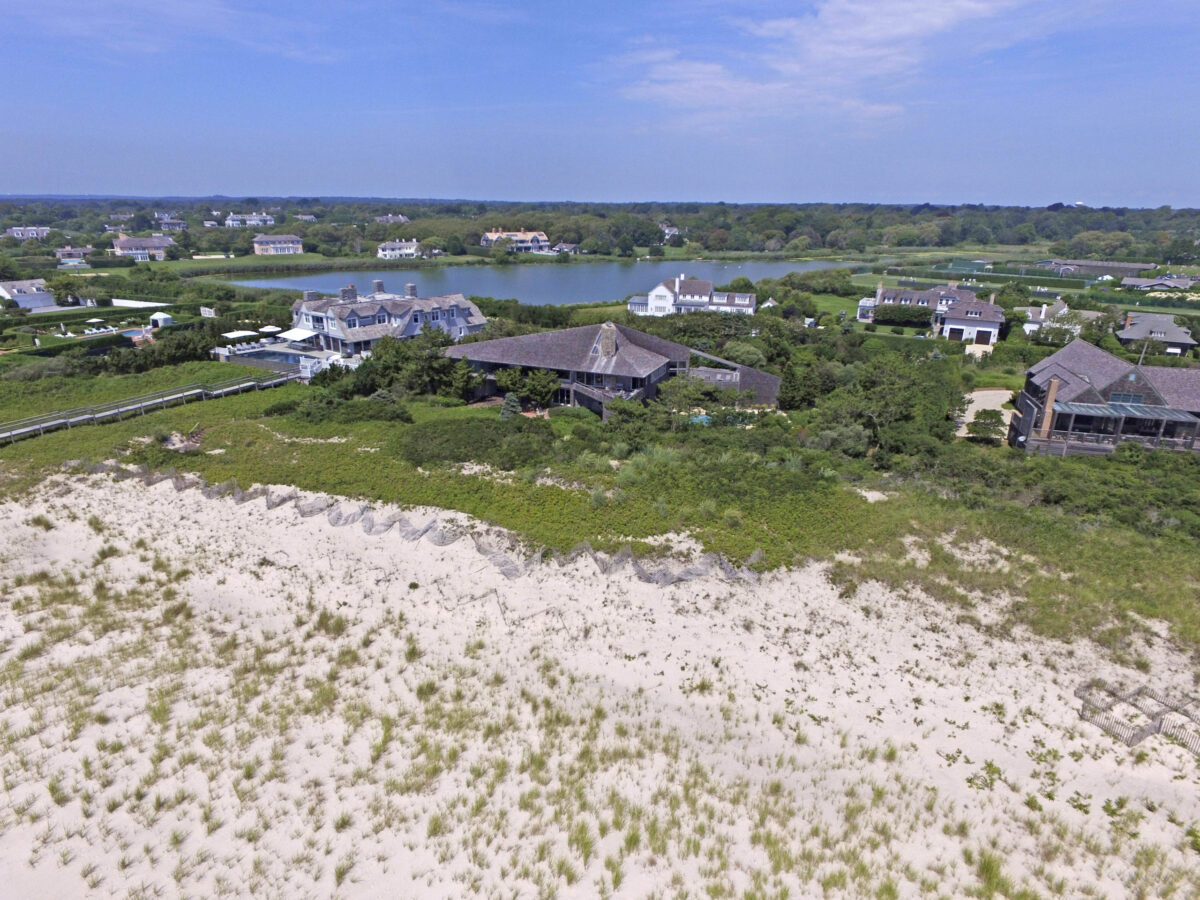
The Southampton Village Architectural and Historical Review Board voted unanimously on Monday night, December 13, to deny a certificate of appropriateness to Orest Bliss, the owner of an oceanfront home at 88 Meadow Lane built by famed architect Norman Jaffe.
Without the certificate, Bliss cannot proceed with a desired plan to demolish the house — which he commissioned Jaffe to build in the 1970s — and build a new one.
The ARB members cast their votes after listening to architect Susan Snyder and historical preservation expert George Thomas. The pair, based in the Philadelphia area, presented the case for granting the certificate, with a detailed digital presentation. The ARB also heard from Bliss’s lawyer, Southampton attorney John Bennett, and New York attorney Valerie Campbell, representing Bliss.
In September, a consultant’s report had found the house to be architecturally and historically significant, and a “contributing resource” to the village.
At that meeting, Bennett said he felt that the consultant, Alastair Gordon, was a problematic choice for that role. Gordon, an architecture critic who writes for The Wall Street Journal, The New York Times and other publications, is the author of “Romantic Modernist: The Life and Work of Norman Jaffe, Architect, 1932-1993” and curated a related retrospective exhibition of Jaffe’s work in 2005 at the Parrish Art Museum.
Bennett argued that Gordon’s well-documented affinity for Jaffe-designed houses essentially renders him incapable of making an unbiased decision.
Bennett and the experts making the case for granting the certificate argued that extensive renovations made to the home over the years diminished its significance, leading to a loss of “site integrity,” and they also pointed out that two other Jaffe-designed homes on Meadow Lane had been demolished, after review, in recent years.
They also made the case that the 88 Meadow Lane home was not one of Jaffe’s most lauded works, pointing out that it was given minimal attention in Gordon’s monograph.
Their arguments seemed to fall on deaf ears.
ARB member Peter DeWitt pointed out that code states that property setting is an important factor.
“I maintain that [the home] is a contributing structure, because it allows the landscape of Meadow Lane to predominate,” he said, pointing out that the home and the roofline in particular were designed to flow seamlessly into the slope of the dunes, a design feature that is increasingly rare to find and is therefore significant.
“I think the setting makes it worthy of saving,” he added, while pointing out that there are not many Jaffe-designed homes left in Southampton Village.
The fact that previous Jaffe homes in the village had been demolished was not a reason to allow another one to be demolished, he said. “I don’t think we should repeat a precedent we’d review as injurious to our heritage,” he said. “Opinions evolve, and boards evolve.”
ARB member Mark McIntire pointed out that it was the first Jaffe home built in Southampton on Meadow Lane, and at that time it caused a different kind of controversy than it is causing now.
“It ushered in a new style of homes being built on Meadow Lane,” he said. “And the controversy that it caused is what makes it significant. Subsequent houses built later on were based on this home.”
The ARB’s decision is likely not the final chapter in the story.
On Tuesday, Bennett did not rule out the possibility of bringing a lawsuit against the ARB but said he still needed to consult with his client about the next steps. He did not mince words when it came to his assessment of the ARB’s decision.
“It was a purely unsupported, goal-oriented decision that had nothing to do with the appropriate standards,” he said.
“If you look at the entire literature supporting the creation of the Southampton Village Historic District, you will not find anything before the 1940s,” he added. “If you want to change the whole structure of the district, you have to do it legislatively and after study, in the correct way.
“There are rules,” he continued. “From a fact-based and legal-based point of view, they have issued a decision that has nothing to do with the appropriate standards.”
The ARB will have a written decision at its next meeting, set for January 10, when it will likely adopt the decision.